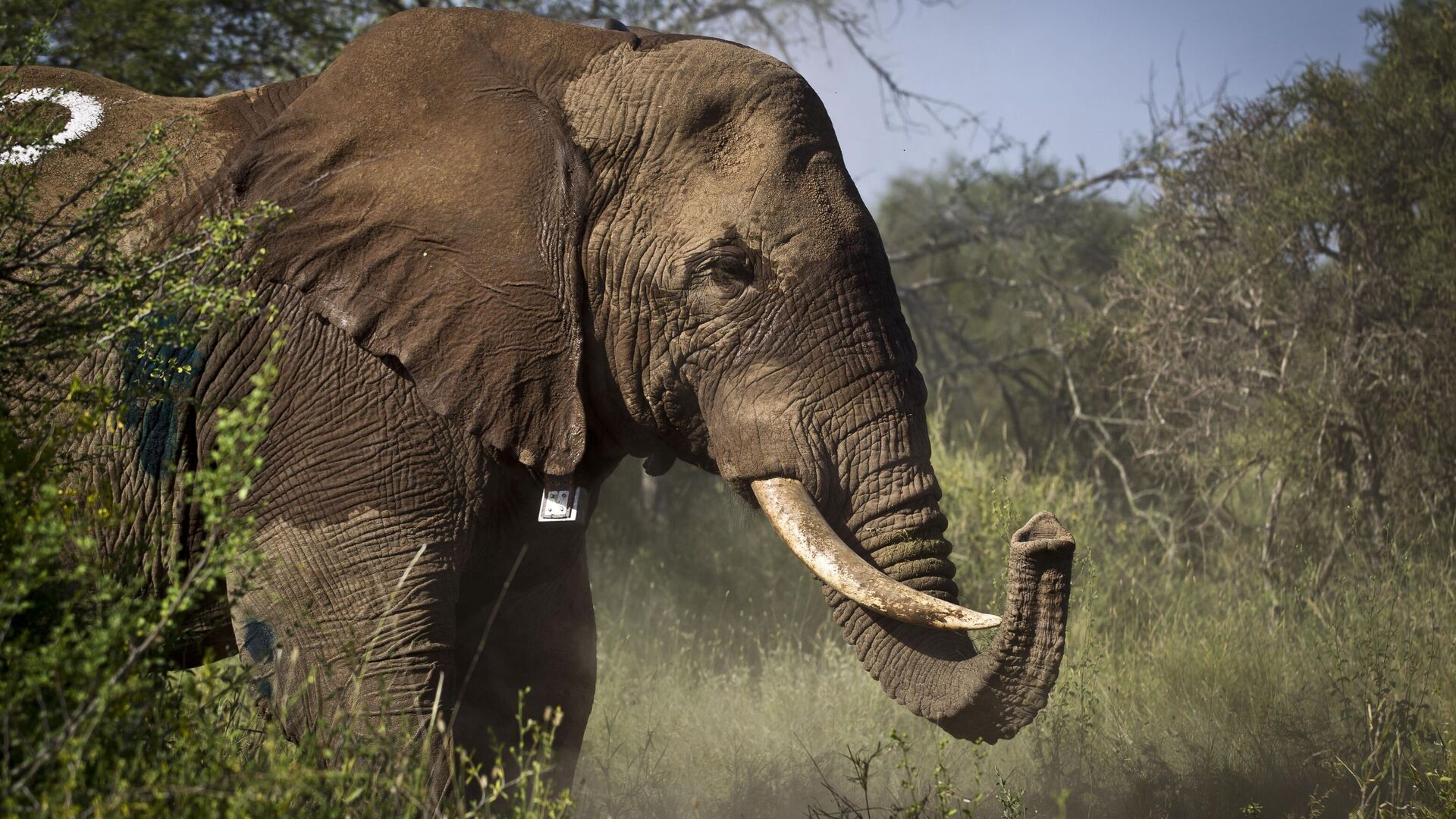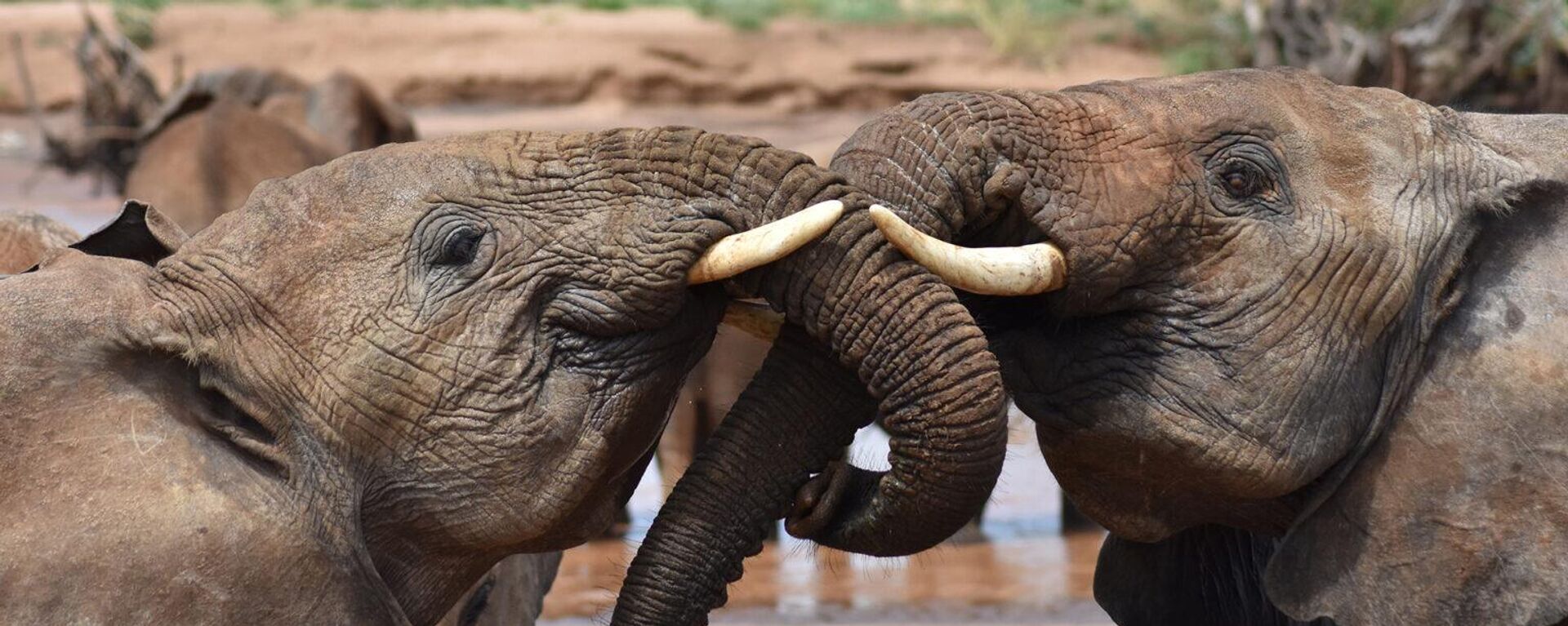https://en.sputniknews.africa/20240813/tanzania-urged-by-conservationists-to-ban-elephant-sport-hunting-in-cross-border-reserve-1067843102.html
Tanzania Urged by Conservationists to Ban Elephant Sport Hunting in Cross-Border Reserve
Tanzania Urged by Conservationists to Ban Elephant Sport Hunting in Cross-Border Reserve
Sputnik Africa
In 1989, the international trade in ivory (tusks), which is used for jewelry and handicrafts, was completely banned by a UN decision. Many countries across the... 13.08.2024, Sputnik Africa
2024-08-13T16:32+0200
2024-08-13T16:32+0200
2024-08-13T17:24+0200
sub-saharan africa
tanzania
kenya
east africa
united nations (un)
elephants
wildlife
endangered species
animals
animals' protection
https://cdn1.img.sputniknews.africa/img/07e8/08/0d/1067842898_0:149:3112:1900_1920x0_80_0_0_2af4f07b2b50b03a5a010cf97c71b215.jpg
Conservationists submitted a petition to Tanzania, urging the government to prohibit elephant trophy hunting in an extensive wildlife reserve that borders Kenya.While Kenya prohibits elephant trophy hunting, Tanzania permits it, leading to instances of hunters killing elephants that crossed from Kenya. Cynthia Moss, founder of the Amboseli Trust for Elephants, emphasized that the loss of these elephants undermines conservation efforts. The Amboseli National Park in Kenya and the Enduimet Wildlife Management Area in Tanzania are home to about 2,000 elephants, including the prized "super-tuskers" known for their large tusks.The petition, supported by over 50 African wildlife conservation organizations and 500,000 signatures, warned that super-tuskers could vanish within three years if hunting continues.Conservationists contend that the Amboseli ecosystem, which boasts the maximum density of these animals, is home to only 10 super-tuskers, each tusk of which weighs approximately 45 kg.In 1995, Tanzania agreed to halt hunting permits after Kenyan elephants were killed, but resumed issuing permits in 2022.
https://en.sputniknews.africa/20240612/hey-joe-african-elephants-can-give-each-other-names-researchers-say-1067011283.html
tanzania
kenya
east africa
sub-saharan africa
Sputnik Africa
feedback@sputniknews.com
+74956456601
MIA „Rossiya Segodnya“
2024
News
en_EN
Sputnik Africa
feedback@sputniknews.com
+74956456601
MIA „Rossiya Segodnya“
Sputnik Africa
feedback@sputniknews.com
+74956456601
MIA „Rossiya Segodnya“
tanzania, kenya, east africa, united nations (un), elephants, wildlife, endangered species, animals, animals' protection, nature, nature reserve, sub-saharan africa
tanzania, kenya, east africa, united nations (un), elephants, wildlife, endangered species, animals, animals' protection, nature, nature reserve, sub-saharan africa
Tanzania Urged by Conservationists to Ban Elephant Sport Hunting in Cross-Border Reserve
16:32 13.08.2024 (Updated: 17:24 13.08.2024) In 1989, the international trade in ivory (tusks), which is used for jewelry and handicrafts, was completely banned by a UN decision. Many countries across the world punish the killing of an elephant with the death penalty. All elephant species are listed in the Red Book as endangered.
Conservationists submitted a petition to Tanzania, urging the government to prohibit elephant trophy hunting in an extensive wildlife reserve that borders Kenya.
While Kenya prohibits elephant trophy hunting, Tanzania permits it, leading to instances of hunters killing elephants that crossed from Kenya. Cynthia Moss, founder of the Amboseli Trust for Elephants, emphasized that
the loss of these elephants undermines conservation efforts.
The Amboseli National Park in Kenya and the Enduimet Wildlife Management Area in Tanzania are home to about 2,000 elephants, including the prized "super-tuskers" known for their large tusks.
The petition, supported by over 50 African wildlife conservation organizations and 500,000 signatures, warned that super-tuskers could vanish within three years if hunting continues.
Conservationists contend that the Amboseli ecosystem, which boasts the maximum
density of these animals, is home to only 10 super-tuskers, each tusk of which weighs approximately 45 kg.
In 1995, Tanzania agreed to halt hunting permits after Kenyan elephants were killed, but resumed issuing permits in 2022.


